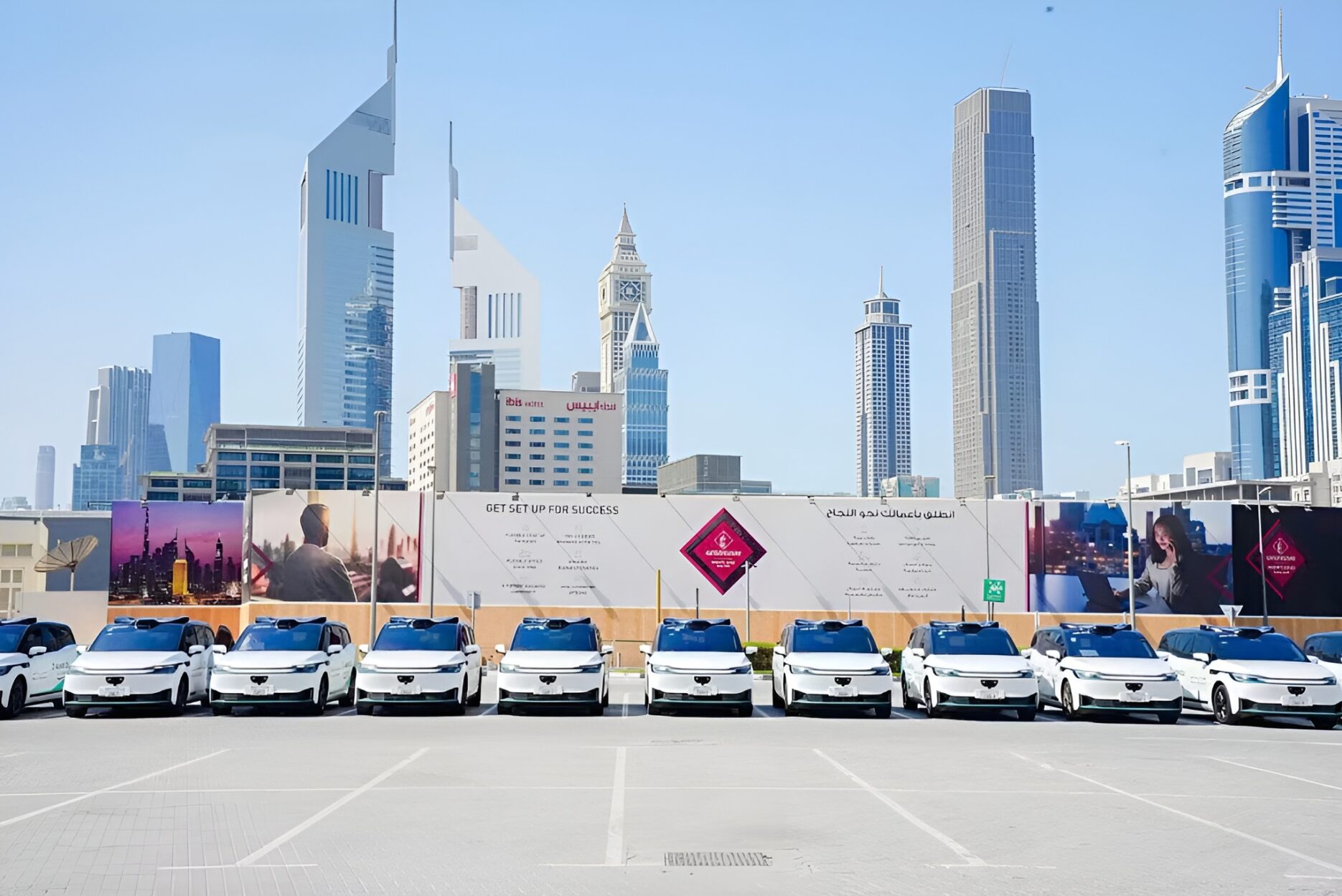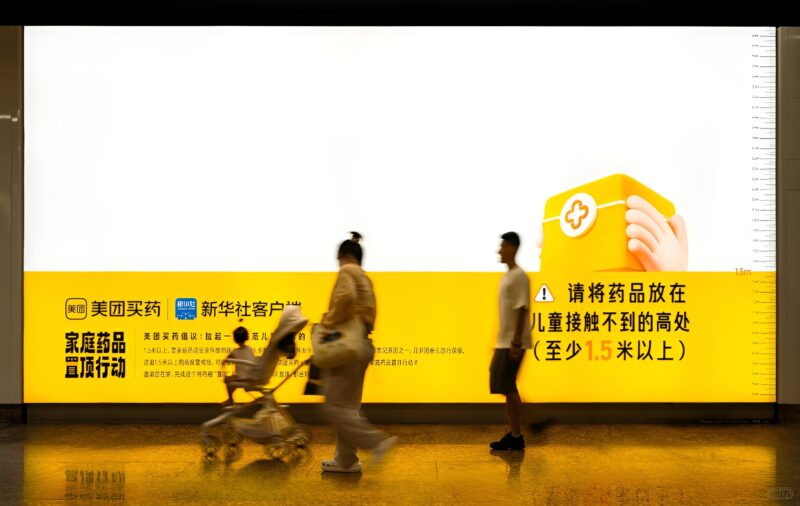Baidu’s robotaxi division, Apollo Go Robotaxi (罗卜快跑), has scored a big win in securing Dubai’s first autonomous vehicle driving test licence. The announcement was made at the recent Dubai World Congress for Self-Driving Transport (24-25 September 2025) by Dubai’s Roads and Transport Authority.
Apollo Go’s licence – numbered 001 – gives them permission to test driverless vehicles, sometimes known as robotaxis, on Dubai streets. Throughout the rest of 2025 they’ll roll out 50 robotaxis with a view to putting 1,000 into action by 2028, providing they all meet performance and safety standards.
Although this is their first large-scale project on the international stage, Apollo Go has a pretty sizable market share in China. They operate in 16 Chinese cities including Beijing, Shanghai and Shenzhen, and have already clocked 14 million rides and over 200 million km of driverless travel.
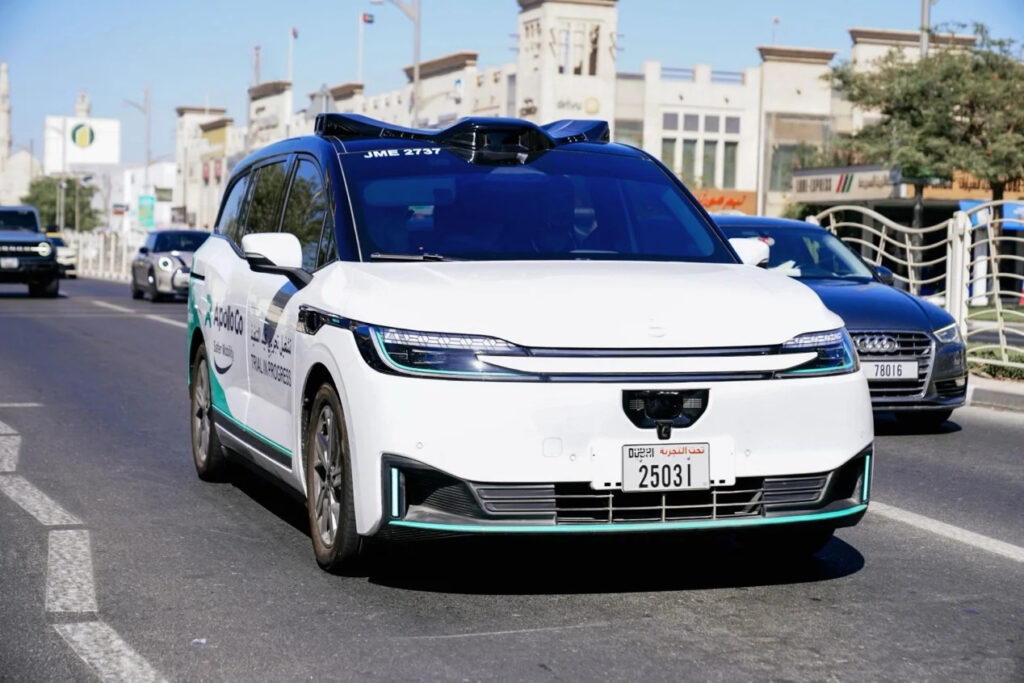
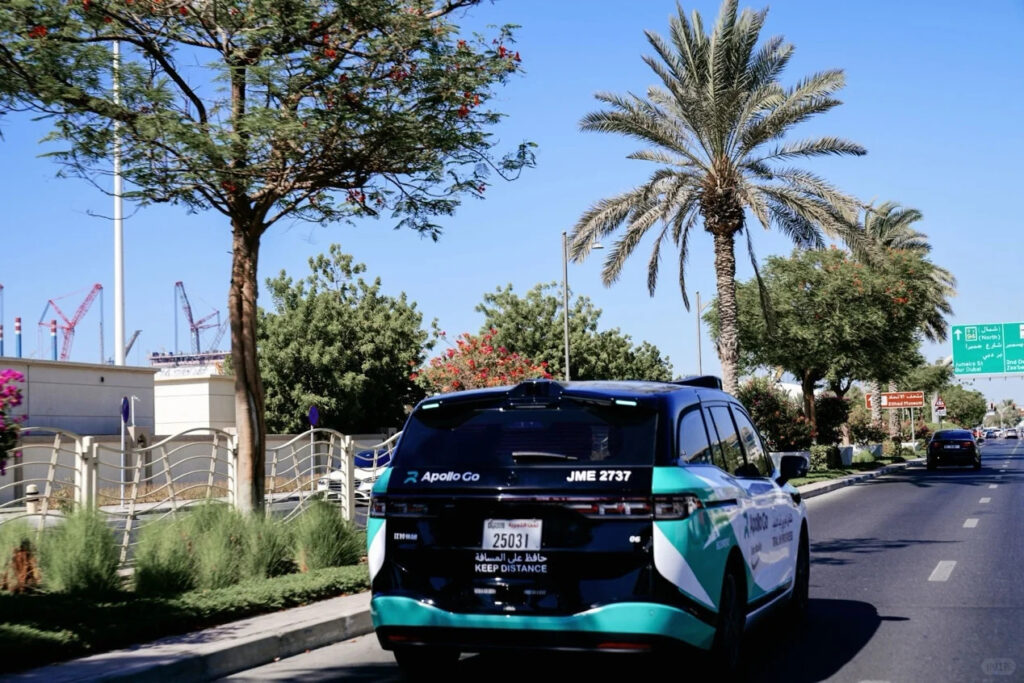
The model they’re putting to Dubai’s roads is the RT6, a sixth-gen autonomous vehicle capable of what’s known as Level 4 autonomous driving – meaning it can operate without a human driver under a range of harsh weather conditions and can re-route itself if needed. These cars will gather data as they navigate the world. Back at HQ, engineers use the collected data to improve performance, making the real-world deployment of autonomous vehicles an important part of their development.
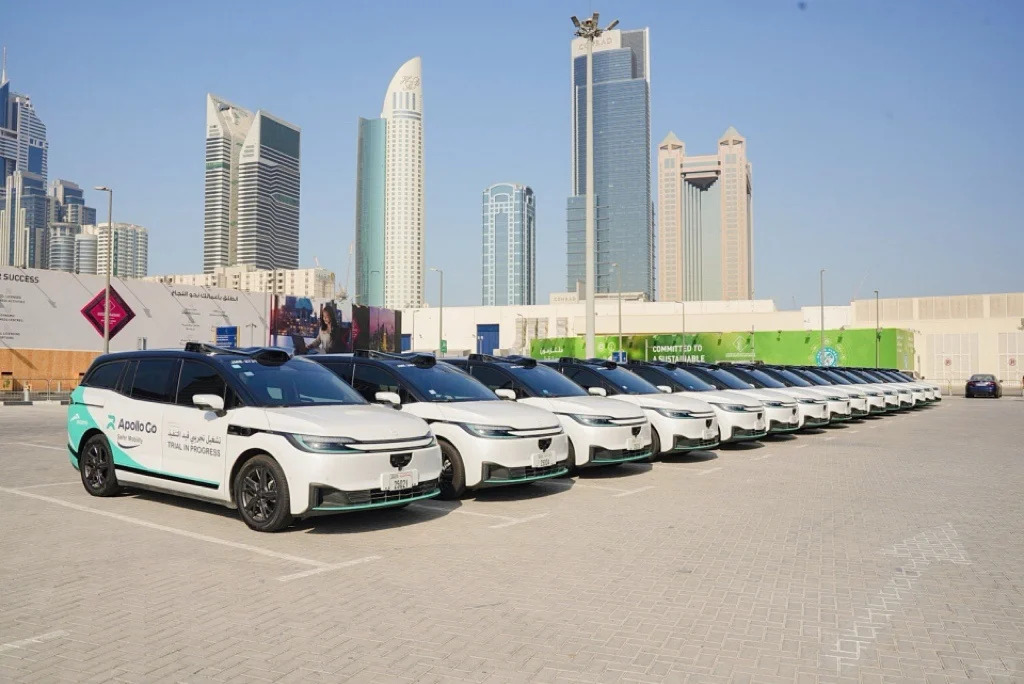
And the development race is on. Big players in the tech world are already looking to carve themselves out a corner of the autonomous vehicle market – one that is expected to be worth USD 300–400 billion in revenue by 2035.
In the U.S., Tesla is putting test vehicles to road in a handful of cities. But China, where robotaxis like the RT6 are becoming a common sight in major cities, seems to be emerging as the global leader. The fact that Chinese companies already have sights set on the international stage is another reason to believe they’re coming out on top.




